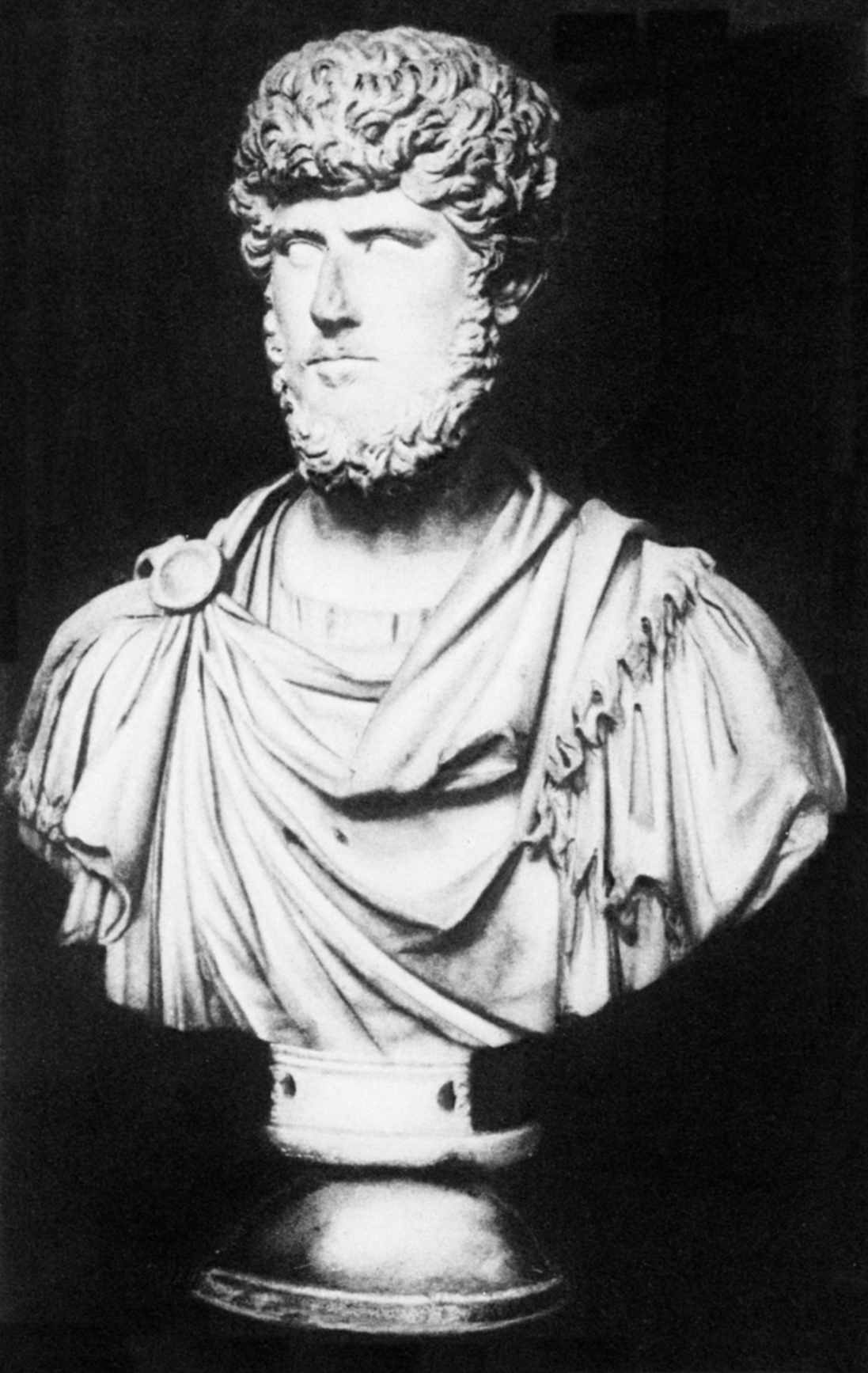INTRODUCTORY NOTE

Emperor Marcus Aurelius
SOCRATES, the son of an Athenian sculptor, was born in 469 B. C. He was trained in his father’s art, but gave it up early to devote is time to the search for truth and virtue. He took his part as a citizen both in war and in peace, and bore the hardships of poverty and a shrewish wife with calm indifference. He did not give formal instruction after the fashion of other philosophers of his time, but went about engaging people in conversation, seeking, chiefly by questions, to induce his contemporaries, and especially the young men, to think clearly and to act reasonably. He made profession of no knowledge except of his own ignorance, and the famous “Socratic irony” was shown in his attitude of apparent willingness to learn from anyone who professed to know. The inevitable result of such conversations, however, was the reduction of the would-be instructor to a state either of irritation at the unmasking of his pretensions, or of humility and eagerness to be instructed by his questioner. It was natural that such a habit should create enemies, and Socrates was finally accused of introducing new gods and of corrupting the youth. His defense, as will be seen from the “Apology,” was conducted with his customary firm adherence to his convictions, and with entire fearlessness of consequences. He could, in all probability, have easily escaped the death sentence had he been willing to take a conciliatory tone, but he died (B. C. 399) a martyr to his unswerving devotion to truth. Socrates wrote nothing, and we learn what we know of his teachings chiefly from his disciples, Xenophon and Plato.
Plato was also an Athenian, born in 428 B. C. of a distinguished family. He became a disciple of Socrates at the age of twenty, and after the death of his master he traveled in Egypt, Sicily, and elsewhere, returning to Athens about 388. Here he established his school of philosophy in a garden near a gymnasium, called the Academy, and here he spent the last forty years of his life, numbering among his pupils his great rival in philosophical renown, Aristotle. Unlike Socrates, Plato took no part in the civic life of Athens, but he was much interested in political philosophy, and is said to have been consulted by statesmen both at home and abroad.
All the works of Plato have been preserved, and they include, besides those here printed, the “Republic,” “Symposium,” “Phaedrus,” “Protagoras,” “Theaetetus,” “Gorgias,” and many others. They take the form of dialogues, in which Plato himself appears, if at all, only as a listener, and in which the chief speaker is Socrates. As Plato developed the philosophy of Socrates, especially on speculative lines, far beyond the point reached by Socrates himself, it is impossible to judge with any exactness precisely how much of the teaching is the master’s, how much the pupil’s.
The philosophy of these dialogues has remained for over two thousand years one of the great intellectual influences of the civilized world; and they are as admirable from the point of view of literature as of philosophy. The style is not only beautiful in itself, but is adapted with great dramatic skill to the large variety of speakers; and the suggestion of situation and the drawing of character are the work of a great artist. The three dialogues here given are at once favorable examples of the literary skill of Plato and intimate pictures of the personality of his master.